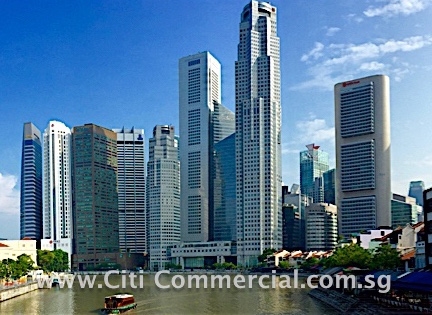Marina Bay Grade A+ rents weaken further

PREMIUM grade office rentals continued to weaken this quarter amid pressure from upcoming big office project completions and weak demand, resulting in heightened competition for tenants, according to latest figures from Knight Frank.
The property consultancy said the gross effective average monthly rental value for Marina Bay/Raffles Place Grade A+ office space in Singapore eased 3.6 per cent to S$9.88 per square foot during the second quarter of this year from S$10.25 psf in the previous quarter.
This marks a slightly slower pace of decline compared with the 3.9 per cent quarter-on-quarter decrease in Q1 this year. The latest drop also marks the fifth consecutive q-o-q drop since the recent peak in Q1 2015 at S$11.49 psf.
Knight Frank Singapore research head Alice Tan highlighted that the second quarter rental decline in the property consultancy group's top-of-the-line Singapore CBD office basket was bigger than drops in other areas in the CBD, ranging from 3.1 per cent to 3.5 per cent.
For the whole of this year, Knight Frank is forecasting a 10-12 per cent contraction in the average monthly rental value in its Marina Bay/Raffles Place Grade A+ basket, double the 6 per cent decline in 2015. It forecasts a further slide of 5 to 8 per cent for next year.
The overall vacancy rate for Marina Bay/Raffles Place Grade A+ office buildings rose to 6 per cent at the end of Q2 2016 from 5.5 per cent at end-Q1 2016.
Knight Frank noted that the rental drop in Q2 was amid heightened economic volatility and an increasingly cautious business outlook, not forgetting the weight of substantial impending supply completions.
"As more businesses resort to proactive measures to manage their office occupancy costs, landlords are rolling out incentive packages such as longer rent-free periods to attract new tenants and retain existing ones," said Calvin Yeo, executive director and head of office at Knight Frank.
"Under current challenging economic conditions, average rents also face downward pressure as a number of tenants look to renew instead of relocate - to avoid incurring hefty capital expenditure," he added.
The expected completion of 6.3 million sq ft gross floor area of new office space in the next 18 months from big projects such as Guoco Tower, Duo Tower and Marina One as well as a string of other developments across the island is expected to further compress office rents in Singapore, including the CBD.
With the Raffles Place/Marina Bay precinct contributing about half of this upcoming supply, downward pressure on rents in prime grade office buildings is likely to persist.
Knight Frank projects that the islandwide vacancy rate for office space will climb to 10-12 per cent by the end of this year from 9.5 per cent at end-2015.
On a brighter note, Mr Yeo said: "The upcoming supply will provide timely alternatives to tenants on the lookout for expansion or relocation."
JLL's head of markets Chris Archibold noted that CBD office rents are still trending downwards but only gradually.
"There are some sparks of demand, for instance, from pharmaceuticals, the serviced office/shared office segment and some law firms; but the numbers are not massive. There is no one sector driving large demand as we had in the past - such as financial services, insurance, commodities and oil and gas."
He predicts that in general, CBD office rents should bottom in the next 12 months.
CBRE executive director of office services Michael Tay said that rents for large tenants in brand-new premium Grade office buildings may have reached a support level.
That said, he cautioned: "We are not able to predict a pick-up in rents just yet because when tenants have relocated to newer buildings, there will be a fair amount of secondary stock in existing buildings in search of replacement tenants. So upward pressure on rents is unlikely in the short term."
That said, Mr Tay said that "selectively in new buildings that are seeing increasing precommitment, there is a possibility of rents starting to firm within six to nine months".




